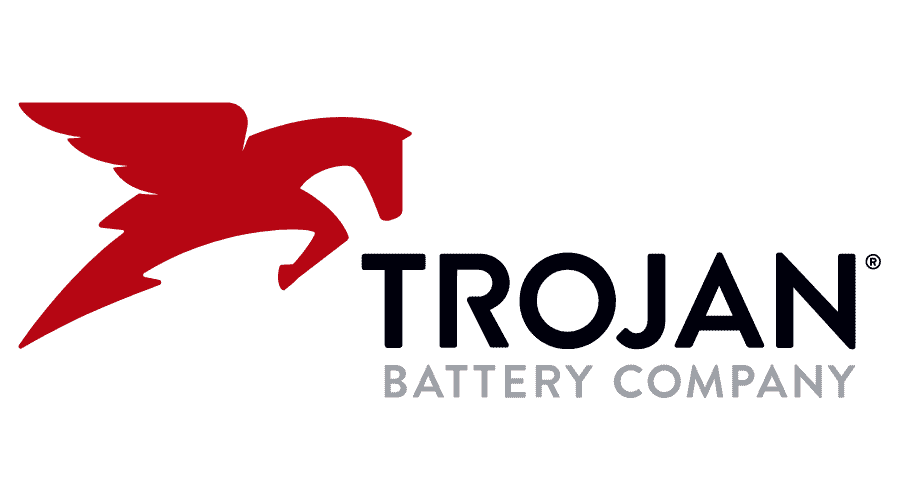By Carl Coken, VP, Engineering, Atrius, Acuity Brands — Artificial intelligence (AI), a concept not so long ago confined to theoretical science and blockbuster movies, is rapidly becoming part of almost every industry. With its ability to compile, analyze, and apply logic to enormous amounts of data, AI has the potential to significantly improve many business and operational processes. To increase efficiency, heighten customer engagement, and lower costs, corporations are eager to add AI to their technology arsenal.

Corporations are eager to add AI to their technology arsenal, but the vast computational power required for AI has the potential to derail decarbonization efforts, so it must be integrated with care. Image courtesy Pexels via Atrius. Click to enlarge.
However, the vast computational power required for AI has the potential to impair organizational efforts toward decarbonization; its applications could come at a great cost if not integrated with care. Some experts have warned that AI could account for 3.5% of all global electricity consumption by 2030. This figure represents more than what the world’s workforce is responsible for now.
Many of these same corporations embracing AI-enabled technologies have also announced bold Net Zero goals. It is imperative that facility managers (FMs) at these organizations devise strategies to lessen the impact of AI’s intense energy draw. Sustainability-minded businesses are focusing on developing energy-efficient AI algorithms that use resources and power more efficiently to lessen the carbon impact. The Machine Learning Emissions Calculator is one resource that can gauge the carbon footprints of AI models by factoring in hardware, cloud provider, and geolocation.
Facilities managers who add AI technologies to their operational processes will see many benefits, including balancing tenant comfort with optimal energy management by automating areas such as window shade adjustment, lights and HVAC based on occupancy.
Artificial intelligence also can help FMs save time and money by correlating efforts with holistic equipment care. Preventive maintenance averts costly surprise breakdowns and attendant shutdowns, and can lower operational and equipment costs. AI tools are powerful resources for compiling information about all facility processes and equipment, including HVAC, water use, security and planning, and climate control. By processing voluminous data sets in real time and recognizing patterns and trends, AI flags problems and offers proactive solutions.
To incorporate artificial intelligence platforms responsibly, facility managers who keep resource optimization at the forefront of planning while incorporating power-hungry AI will reap the benefits of this game-changing technology. Switching from fossil-based fuels to renewable energy will lower the impact of AI’s energy draws. AI processors are a growing footprint in data centers, which have extensive cooling requirements to offset the heat generated by the thousands of servers running 24/7. Industrial HVAC and water coolers are part of data center infrastructure; to lower the intense environments temperatures, developers are seeking colder climates to construct new facilities and take advantage of natural conditions.
The Energy Efficiency Act in Germany, which would transpose the updated EU Energy Efficiency Directive into national law, proposes that data centers use 100% renewable energy by 2027 and capture and reuse residual heat to warm other nearby housing and other facilities. In fact, while AI requires enormous energy to operate, its ability to process vast reams of data in real time and automate energy allocation for optimal use offers sustainable solutions to this problem. Data analytics experts estimate that AI used for climate mitigation alone could add up to $5.2 trillion to the global economy by 2030 and greatly enhance sustainability efforts.
Leading efforts to use AI carefully include Google, which has developed its own AI “DeepMind” to reduce the energy consumption of its data centers by 40%. Amazon, a prime data center operator, has announced plans to use 100% renewable energy, lengthen server life spans through enhanced maintenance, and be at a water-positive status by 2030 (more water returned to communities than used by facilities). Microsoft’s Azure data centers are aiming for carbon negative status by 2030 through more efficient data centers, clean energy, and environmental caretaking. As these organizations yield a powerful influence and others adopt similar measures, the AIplatform’s energy use will become more manageable.
Facilities operations represent a quarter of all carbon emissions, and employing AI-enabled technologies to automatically manage lighting, energy systems, and customer operations are just a few ways AI can improve resource allocation. With targeted investments that can responsibly balance energy use with occupant and business needs, facility managers can both harness the power of AI while making progress on decarbonization goals.
The increased usage of AI-enabled technologies has spawned legions of enthusiasts as well as doomsayers, but its promise lies somewhere in between those saying it will solve all of society’s challenges and those anticipating new problems. The technology cycle is early, and there will likely be much discussion and upheavals as society grapples with how AI will be used and applied in a fair, energy-conscious and ethical manner.
About the Author
 Carl Coken, vice president, Engineering, Atrius, Acuity Brands
Carl Coken, vice president, Engineering, Atrius, Acuity Brands
Carl Coken is VP, Atrius Engineering, Acuity Brands. He is responsible for the development of the Atrius suite of products and solutions which control thousands of buildings, interact with millions of people, and manage billions of square feet of real estate around the world every single day.




